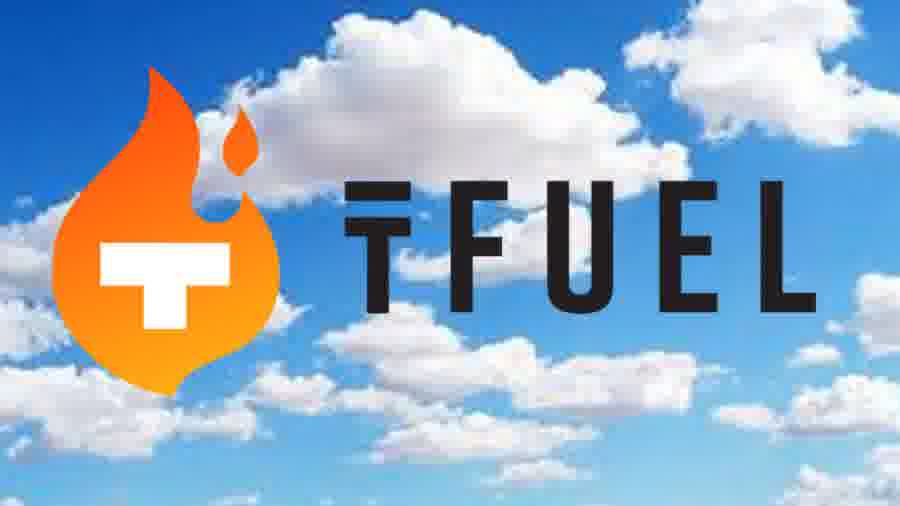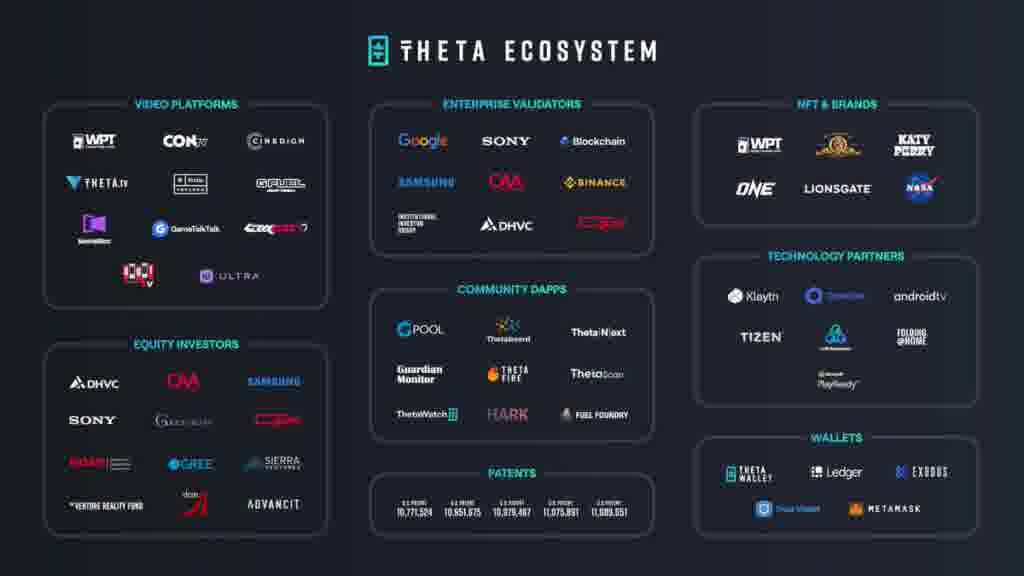WHAT DOES THE THETA NETWORK “YOUTUBE BLOCKCHAIN ALTERNATIVE” KNOW? A complete guide

Theta Network is the largest blockchain-based video sharing portal the Theta network. It’s cheaper and decentralized, as we like for a blockchain project. It’s a promising initiative, and Samsung and Sony have already backed it.
WHAT IS THETA NETWORK (THETA)?
Available at: Binance Huobi KuCoin, OKEx
Competitors: BAT, HIVE
Highest price: $14 / $0.00026 BTC
Lowest price: $0.04 / $0.0000094 BTC
(at the time or writing)
You can find up-to-date market information from THETA coin here.
WHAT’S WRONG WITH TRADITIONAL VIDEO SHARERS?
Sharing video content is not an easy business. One problem is that when materials are stored in one place, access is extremely slow. To eliminate this, video portals use many servers around the world, so streaming is hassle-free, an infrastructure called the Content Delivery Network (CDN) is utilized.
However, the operation of the CDN is very expensive, and since data centers charge the video website based on data traffic, if a portal becomes popular, the costs will multiply. On YouTube, for example, we either pay for a premium account or watch ads. If you’re not completely IT illiterate, you can use an adblocker or Brave browser. Although, given that YouTube still generates huge revenue, apparently this is not universal.
That’s where Theta.tv comes in.
WHAT IS THETA NETWORK?
Theta Network aims to reduce the costs that well-known video-sharing platforms pay for their operations. This is achieved by channeling some of the data stored on the CDN to Theta’s peer-to-peer network. The principle is similar to that of BitTorrent, where content is shared directly by users, but content producers are paid here. Theta Network does not seek to replace YouTube or Twitch, it merely offers an infrastructure where sharing works in more of a decentralized manner at lower costs.
If you watch a video on a streaming site that uses the Theta Network, you will get the data through a combination of two channels. The video comes partially directly from the website’s divisive platform and partly from Theta’s network. Although Theta Network is cheaper than centralized solutions, some costs have to be taken into account, which is what Theta cryptocurrencies are for.
THETA NETWORK WORKS WITH TWO COINS
Those who share video material using Theta Network will receive a payment, which is paid for by the platforms themselves, not by end users. To pay for streamed content, the network uses a standalone token called TFUEL.

Another cryptocurrency running on Theta Network is THETA. The main role of this token is network management. Basically, THETA owners can vote on the direction of development, so the community has the fate of Theta Network in their hands. For now, this process is still in its infancy, but it is planned to play a greater role in the future.
There is a fixed stock of THETA coins on the market, which is 1 billion coins, and no more is generated from that. Stacking THETA, on the other hand, can yield TFUEL, of which 5.3 billion exists, 5% per year going to stake THETA holders, so that’s inflation.
WHAT YOU NEED TO KNOW ABOUT THETA BLOCKCHAIN
Theta’s own blockchain is fast and designed for smaller transactions. This is a great way for content providers to get their TFUEL tokens right away, which never gets to be a bigger amount all at once. In the background, the infrastructure is based on a proof of stake consensus mechanism that delivers the staking model using the Tendermint blockchain code. During stakes, THETA coins are tied up at network nodes who are responsible for validating the transaction.
Validation of non-consensus blocks is protected by the system losing some of the stacked THETA coins, so it is in the interests of all involved in the process to operate authentically. As long as the stakers go with the shared ledger, they search the blockchain, but in case of fraud they lose anyway, which makes the transmission of the blockchain and transactions reliable.

In the logic of validation, there is another important thing that ensures safety. The Blockchain has two levels. First of all, there are validating nodes that are high-performance computers and can authenticate a lot of transactions very quickly. There are not many of them and they are typically operated by companies that have taken on the hardware and technical background needed to provide blockchain, e.g. Samsung or Sony. They have the capacity to keep transactions running on a global blockchain in order, both in terms of validation and general ledger entry. The validator node also has another task: to stack 1 million THETA coins.
The other level on blockchain is made up of the community nodes. Their job is to monitor these validator nodes. There are thousands of community nodes, immediately indicating if a validator deviates from the consensus with a bad block, and they shut down the suspicious or malicious validator. The community node stakes 1000 THETA coins.
WHO IS WORKING ON THE DEVELOPMENT OF THETA NETWORK?
The company to which Theta is credited is Theta Labs, whose CEO is Mitch Liu, the owner of Theta.tv. Compared to the size of the project, the team is small, there are only 25 people overall, in the San Francisco – Bay Area area, but they also recently opened an office in Seoul.
The company’s chief strategy manager claims Theta Labs generates just a token amount of revenue, but Theta.tv generates some profit. Financially, they rely mostly on investors, including Samsung and the Sony innovation fund, along with a range of additional equity funds. They run the validator nodes, four of which have announced that they will be working on a $100 million THETA coin that they had bought earlier at a much lower price than now.

The advisory team includes executives from major media companies, such as Steve Chen, YouTube co-founder; Justin Kana, co-founder of Twitch and Jonathan Wong, director of product development at video streaming company Rakuten Viki.
Theta Labs has registered three patents with the U.S. Patent Office, all three describing technology innovations in video streaming on decentralized networks.

